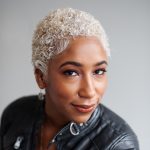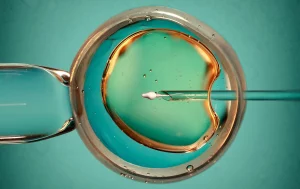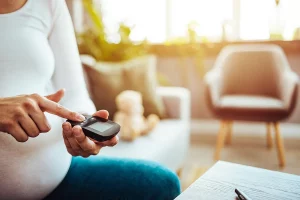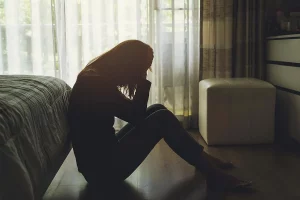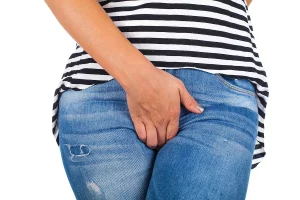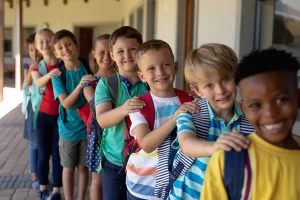
DURING THE EARLY WEEKS of December, the voices of Caribbean women were lifted and amplified, bound together by the #LifeInLeggings movement started in Barbados by Ronelle King and Allyson Benn. The hashtag, primarily used on Facebook and Twitter, is a hub for story-sharing where women are talking — many for the first time — about experiences of sexual violence ranging from harassment to rape. Their stories span many years of lived experiences, unearthing memories some had hoped were gone forever. The participating women are putting their names, faces, and stories to an epidemic often characterized only by numbers.
#LifeInLeggings is a safe space for women within the caribbean who have been sexually harassed/abused.
— Ronelle King (@IAmXilomen) November 27, 2016
When the women of Barbados started using #LifeInLeggings in higher and higher numbers, it got the attention of women throughout the Caribbean. The space quickly filled with women from Trinidad & Tobago, Guyana, Jamaica, The Bahamas, and numerous other Caribbean countries. King said it was her intention to bring other Caribbean countries into the conversation. “Rape culture isn’t just a Barbadian issue; it’s a Caribbean issue as well as a global one, so I knew that support would pour in from the other countries.”
In Dominica, Delroy Nesta Williams and Khadijah Moore started #LévéDomnik to bring attention to the specific experiences of women in the small island nation of less than 73,000 people. Williams said the response from women in Dominica has been overwhelming: “For a small population, we’ve gotten upwards of 400 stories in just over 4 days. It’s monumental that so many of the stories have similar trajectories, that many of the underlying themes come back, that it clearly identifies trends that we can openly address.”
Some Caribbean women are using #LifeInLeggings in combination with #MappingHarassment to participate in BBC’s project to collect stories of sexual harassment. Seeing the stories of women like them within their region has pushed them to take their stories further, in the hopes of making a global impact. Many of the contributions to #LifeInLeggings were focused on street harassment — some were stories of experiences, while others focused on preventative measures and feelings of discomfort and apprehension when entering public space.
#LifeInLeggings is being wary of all men when walking the streets alone, regardless of how polite they may seem.
— Aly P (@alyprime913) December 3, 2016
Police statistics are not representative of the lived realities of women. Sexual violence is under-reported, especially in small communities where more people are likely to know each other. The issue is taboo, not only for perpetrators, but also for survivors who carry shame and guilt, often led to believe that what happened to them was their fault.
In surveys conducted in nine Caribbean countries, 48% of adolescent girls reported that their sexual initiation was “forced” or “somewhat forced.” According to UN Women Caribbean: “Three of the top ten recorded rape rates in the world occur in the Caribbean. While the worldwide average for rape was 15 per 100,000, The Bahamas had an average of 133, St. Vincent and the Grenadines 112, Jamaica 51, Dominica 34, Barbados 25 and Trinidad and Tobago 18.”
#LifeInLeggings, like any women-centered movement, has endured incessant backlash from people — mostly men — who claim it is infringing on their rights, or suggesting that all men are predators. They have gone as far as creating their own hashtags. Some participants have taken the time to briefly address them, either explaining that women need this space to share with and support one another or calling them out for misogyny. Arguments are frequently diminished to comparisons between women men don’t know and the women in their family. The “She’s someone’s mother/sister/daughter” refrain is all too common and trite, connecting a woman’s value to her nearest male relative. Some people noted that, in some cases, men only recognize the harm they cause when they have daughters.
When one of the men who assaulted you shows support for the hashtag because he has a daughter now. #LifeInLeggings
— OCD Bandit (@OcdBandit) December 3, 2016
#LifeInLeggings has been an inclusive space for women, and stories from LGBTI women are finding another platform to be shared on. Heteronormativity is rarely put under the microscope, often an overlooked aspect of misogyny and patriarchal systems. Queer women have shared stories about the contempt of men when they occupy space with their partners, dress in ways comfortable to them, and refuse advances from men. These situations can often be volatile, leading to threats and/or acts of violence. Corrective rape is more common than indicated by official reports, and the constant threat is both manipulative — meant to invisibilize and scare people — and indicative of rampant homophobia and hypermasculinity.
#mappingharassment #LifeInLeggings don’t dare be a masculine woman going about your business. Because some man gonna wanna fuck u straight
— fuji (@ampersandv3) December 3, 2016
One of the most powerful outcomes #LifeInLeggings has been the community it has built. When people tweeted their fears, others replied with kindness. When everyday Caribbean women shared their stories, it encouraged others to do the same. Barbados Independent Member of Parliament Dr. Maria Agard and Trinidad and Tobago Minister of State in the Office of the Prime Minister Ayanna Webster-Roy shared their stories online and at a gender-based violence consultation, respectively. Tanya Stephens — popular reggae artist — shared her own story in a Facebook post. She talked about wanting to tell people what happened, but deciding against it based on people’s actions.
“When I heard negative comments about OTHER rape victims I wrote them off. When I heard righteous rants about morality I wrote them off. When I heard discrimination of ANY sort I wrote them off. I saw them smile with a pedophile and discuss him behind his back but NEVER confront him so I wrote them all off.”
Sexual violence does not respect age, race, occupation, title, location, style of dress, or language. If that was not clear before, it can certainly be attested to now with thousands of Facebook posts, tweets, and anonymous submissions. Women of Caribbean nations have finally been given permission, space, encouragement, and peer support to share their stories as a way to reclaim power and show their sisters that they are not alone.
